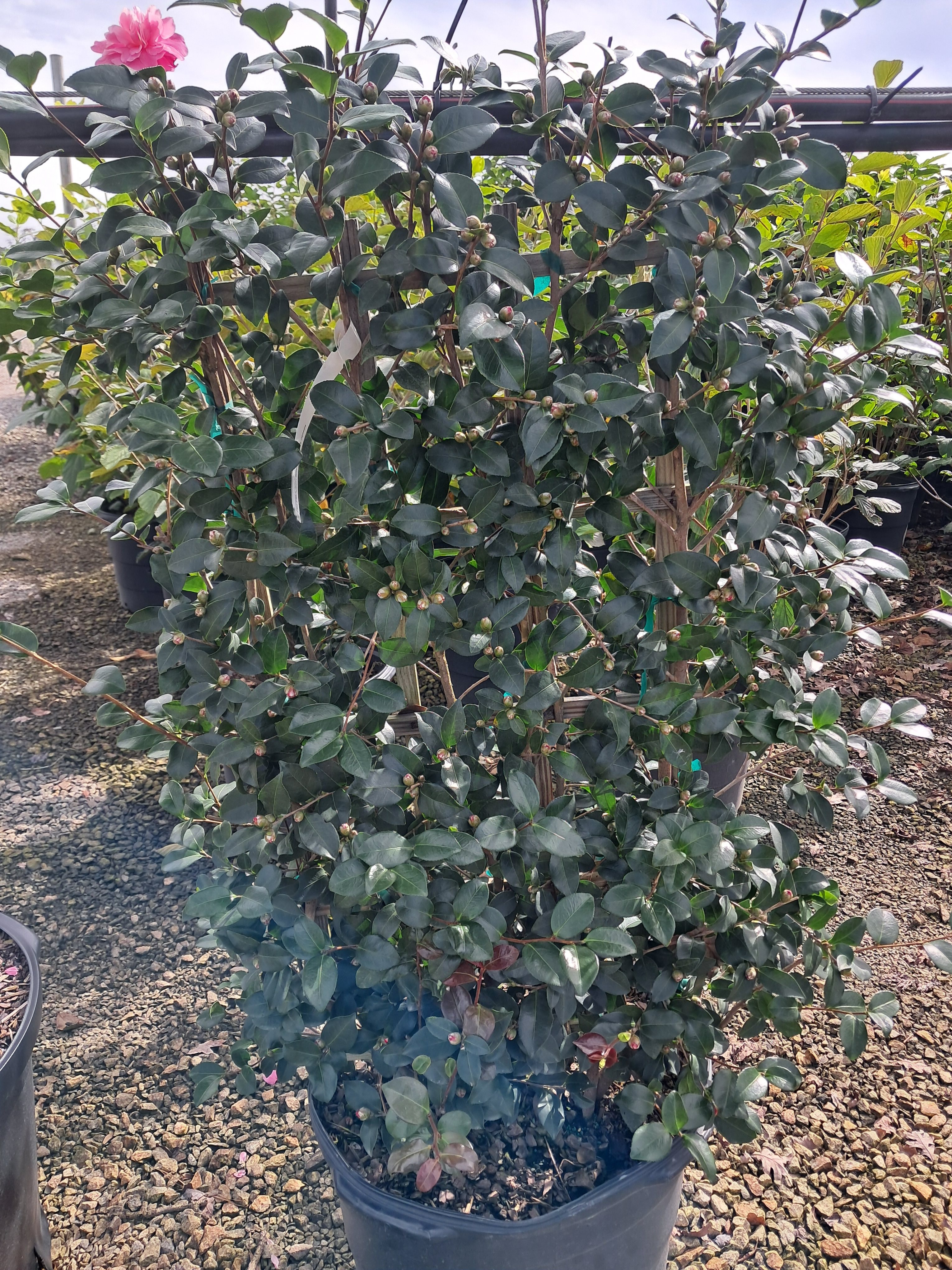919-552-8286
sales@adcocksnursery.com

"We've grown Agave parryi from all along its native range, but the best clone is still the one growing at the JC Raulston Arboretum in NC. We tracked this clone back to a plant that originated from J.C.'s 1979 trip to California's Strybing Arboretum. Strybing obtained their plant from California professor Jack Napton in 1971. This special clone forms large symmetrical 2' tall x 3' wide rosettes that seem particularly well-adapted to winters in wet, humid climates. It is slow to offset compared with many forms, which makes propagation more of a challenge. This clone needed a name and we could not think of anything better than to name it after the late Dr. J.C. Raulston. When it gets around to flowering, the 15' tall leg-thick spike, topped with clouds of yellow flowers, will draw hummingbirds from all around." - Plant Delights Nursery
Photo Credit: Doreen Wynja

Grows 5' - 6' ht. & sp.
What a beautiful flower this Camellia has! Autumn Spirit is a hybrid between C. oleifera x C. sasanqua and deserves to be a focal point of any garden. It's bright and deep pink peony-shaped blooms are an intense show-stopper, and show up early in the season.
Like most sasanquas, they prefer slightly acidic and moist, rich soil that is well-drained, and they could use a little protection from the brutal afternoon summer heat.
Our plants are espaliered, but these would work well as a corner foundation plant, screen or even in a container.
Photo Credit: NC Extension

Grows 40 to 60 feet tall and 15 to 20 feet wide
Carolina Sapphire Cypress (also called Arizona Cypress) is an elegantly tall, wide, and evergreen tree that grows best in full sun and well-drained soil. It is moderately drought and salt-tolerant and needs little water once established. Built for the brutal heat of North Carolina summers.
The foliage has beautiful, silvery-blue to teal coloration year-round, and the bark is gray to brownish-black. The branches are sturdy but have a lacy appearance and its aroma and color interest make a great display in holiday greenery.
Carolina Sapphire Cypress is relatively trouble-free and moderately deer-resistant, making it a good choice for screening when compared to other fast-growing evergreen choices. It can be used as a specimen tree or for windbreaks.
Photo and Copy Credit: NC State Extension